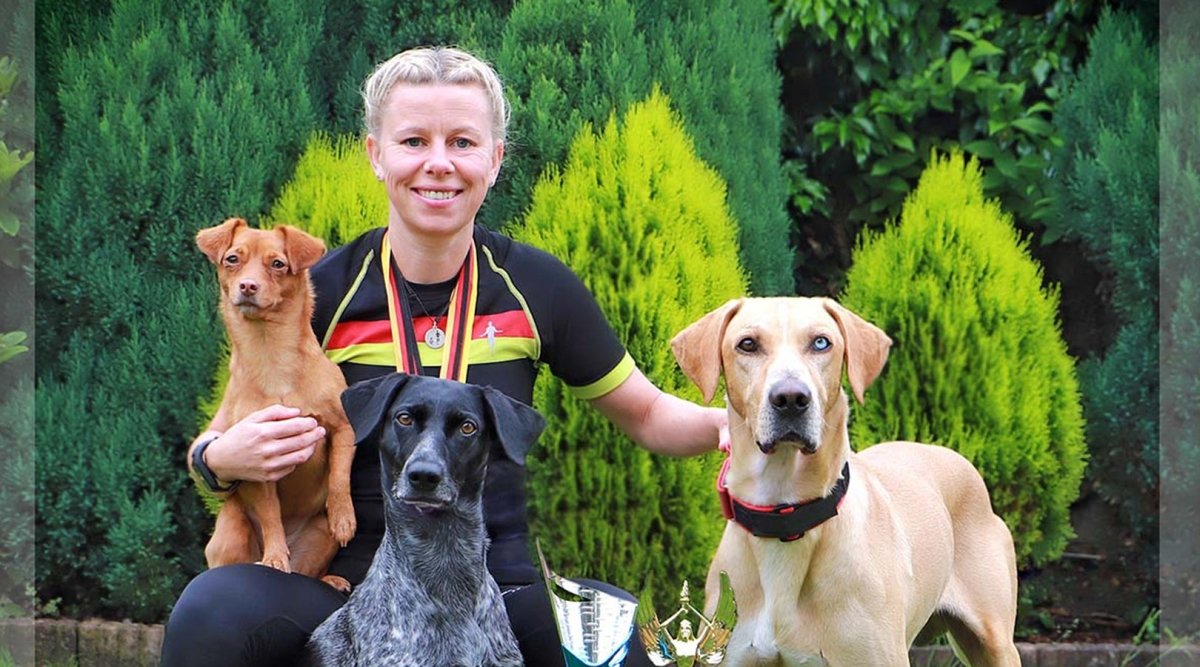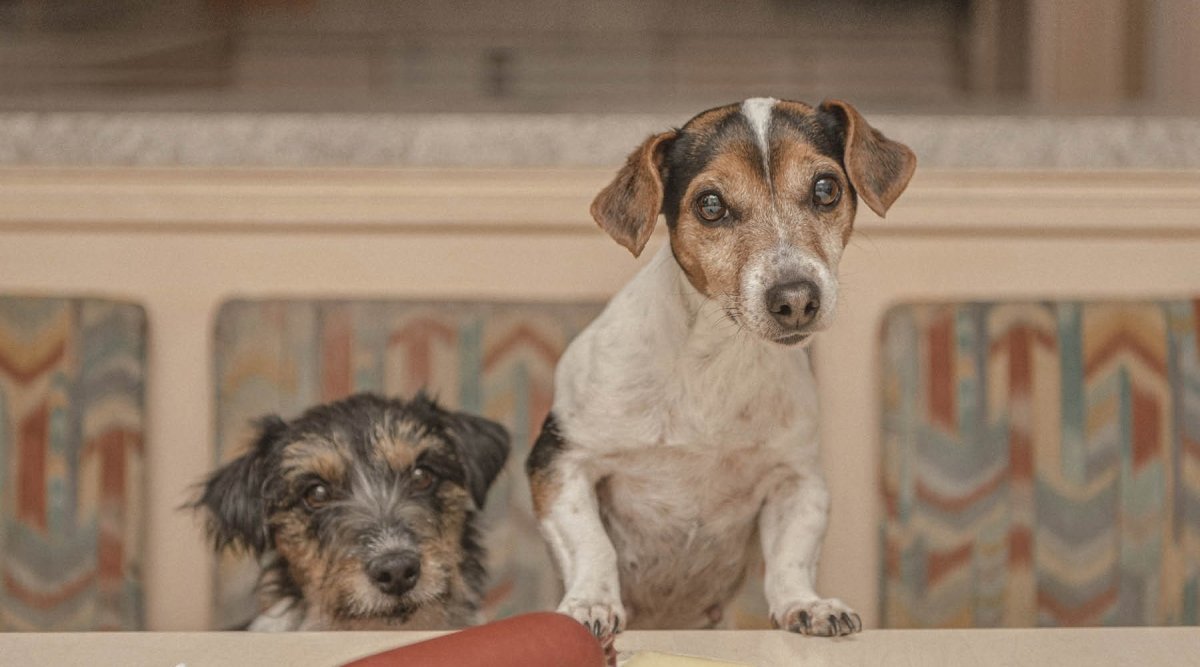Would you like to get a dog and are looking for the right breed? Or have you already decided on a particular dog breed but are not sure whether this dog really suits you? It would be a shame to find out that you and your pet don't get along after all. Perhaps the dog breed is too temperamental, has a strong hunting instinct or needs an above-average amount of exercise. You are looking for a family dog that will enjoy playing and having fun with you and your children. You should consider these and many other aspects before deciding on a particular dog breed. Find out from us what you need to consider before getting a dog and which breed suits your lifestyle.
Getting a dog: a few basic thoughts first
If you want to share your life with a dog from now on, you should ask yourself a few basic questions beforehand:
- Do I have enough time for a dog?
- Can I afford a dog financially?
- Is it even permitted and possible to keep animals in my home?
- Am I prepared to spend my life with a four-legged friend for the next 10 - 15 years and provide them with the best possible care?
- Can I plan my vacations in such a way that I can take the dog with me or that it is well looked after in the meantime?
A dog also needs a balanced diet, walks become your daily activity, annual visits to the doctor are part of the to-do list and you shouldn't leave your pet alone for too long.
If, after careful consideration, you still decide to get a dog, you should look into the breed-specific character traits in order to find the right dog for you and your family. Despite their relationship and original descent from the wolf, there are over 400 different dog breeds that are very different. There are large, medium-sized and small dogs, long coats that require a lot of care or short, stubborn bristles, a stubborn temperament or a relaxed grump.
In addition, prospective dog owners should ask themselves whether their preference for a particular dog breed matches their own character and preferences. Of course, it becomes difficult when several characters have to be taken into account, as is usually the case within a family. A balanced dog that adapts quickly is better suited to this than a shy conspecific.
However, in addition to the character traits of the dog, your character traits and living conditions are also decisive. If you are more of a single type and spend a lot of your free time outdoors doing sports, then a running and hunting breed is just right for you. You can work each other out and grow together.
If you live in the city in an apartment building with lots of stairs and no elevator, a Golden Retriever is not so suitable, as this breed is particularly predestined for joint problems. Or perhaps you have a preference for herding dogs such as the Australian Sheppard, in which case you should also be able to offer this intelligent animal the necessary mental exercise.
As you can see, there are many aspects to consider when buying a dog. And it's not so easy to find out which dog breed really suits you. Therefore, when deciding on the ideal dog, you should not only start from the appearance and the preference for large or small dog breeds, but above all weigh up what you can offer the dog and what living conditions the dog has to come to terms with.
We have put together a list of questions for you to help you decide which breed is best suited to you and your circumstances. This list of questions can help you to define your circumstances. You will quickly recognize which dog breed is not at all compatible with your life situation.
List of questions: Which dog suits me?
- How much space do I have?
- Do I live in the city or in the country?
- How much time can I invest each day in caring for, training and keeping the dog occupied?
- How long would the dog be alone per day/per week?
- How much money do I have left for the animal?
- Am I a beginner or an experienced dog owner?
- Do frail people or small children live in my household?
- What tasks do I want the dog to perform?
- Will it often meet strangers (e.g. at work)?
- Should it be a puppy or an adult dog?
Where can I find out about dog breed portraits?
To find out which dog is best suited to you and your circumstances, you can ask dog owners about their experiences. Experience has shown that dog meeting places are full of pet owners with a wide variety of dog breeds, especially in the morning and evening hours. As a result, you will quickly come into contact with other pet owners and may already have met a partner or two for your new four-legged friend.
If you are looking for professional help in choosing the right dog breed, you can make an appointment at an animal shelter or with experienced breeders. You may be able to view the dog breed in question on site. While a breeder will usually only provide you with information about a specific breed, you can find out important information about many different dogs at an animal shelter.
In addition to our questionnaire, you can also read various information about your favorite breed in advance. Then you will know before you meet the animal shelter or breeder whether this breed is suitable for you and your circumstances. To give you an initial overview, we have put together some dog breeds and their characteristics below.
Dog breeds for beginners and family dogs
Beginner dogs are characterized by the fact that they are generally even-tempered, family-friendly and enjoy spending a lot of time with their humans. They adapt quickly, are easy to train and are rarely aggressive. They have a lovable nature and want to please their owners. The most popular beginner dogs are mainly Golden and Labrador Retrievers, they are considered to be particularly child and family friendly, but require a lot of attention and activity. The German Boxer is also well suited as a beginner's dog. They are very intelligent and easy to train, adaptable and non-aggressive. However, they can sometimes be stubborn and need a lot of exercise and consistent leadership. Smaller dog breeds for beginners include the relaxed Pug, the Havanese, one of the oldest dog breeds in Europe, and the gentlemanly Cavalier King Charles Spaniel. They are also particularly easy to care for and have a relaxed character. Nevertheless, even beginner dogs need a lot of care, attention and exercise, although the pug prefers personal physical contact with its master.
Hunting dogs or sled dogs for active sports enthusiasts
Although dogs are very active animals that enjoy being outdoors, not every breed is suitable for endurance sports and extensive jogging tours. It tends to be the larger dog breeds that have a particularly strong urge to move and want to be really challenged. They are characterized by a robust build and are very agile, fast and strong. Most of them are hunting dogs or sled dogs. Rhodesian Ridgebacks, German Shorthairs, Siberian Huskies and Weimaraners are such agile dog breeds and need a lot of exercise, both physically and mentally. The Beagle, the Lakeland Terrier and the small but very energetic Jack Russell are also ideal for long outings in the countryside, various dog sports such as agility training or for hunting or chasing. They can also be kept busy with retrieving training, but require a pack leader with a clear line and strict instructions. In return, these dog breeds are known for their loyalty to humans and their vigilance.
Calm dog breeds - relaxed and balanced
In addition to the active and particularly active hunting dogs, there are also some cozy and calm dog breeds. They are characterized above all by a balanced disposition, gentleness and a pronounced need to cuddle with their master. The Irish Wolfhound, the St. Bernard, the Eurasier and last but not least the smallest of them all, the Basset Hound, are very relaxed contemporaries. They radiate an inner calm, are very adaptable and people-oriented. They do not shy away from unfamiliar situations, which may be due to their pronounced self-confidence. However, there are also some small, calm dog breeds. The Chinese crested dog is a calm dog, even if it is not everyone's favorite. The Cavalier King Charles Spaniel is also one of the more relaxed dog breeds and barking loudly is almost completely alien to it.
Herding dogs - loyal companions with high standards
Herding dogs are workhorses: they were, and in some cases still are, the working dogs of herdsmen and shepherds, keeping the herd together and collecting any stragglers or herd escapees. Herding dogs are intelligent, very alert and subordinate to their pack leader. They are therefore considered to be very loyal companions, although their breed character means that they need to be well exercised. If the dog cannot live out its instinctive herding behavior, it must be mentally and physically stimulated in other ways. Otherwise, these dog breeds become very unhappy and the bond between owner and dog can suffer greatly. Despite their quick comprehension and eagerness to learn, herding dogs are not suitable for inexperienced dogs or families with children. The most popular dog breeds for herding and herding dogs are the Border Collie and the Bearded Collie, the sporty Australian Kelpie, the alert German Shepherd, the very intelligent Australian Shepherd or the long-haired Collie Rough.
Small dog breeds
Small dog breeds are particularly popular with dog owners. Small dog breeds are often seen in big cities in particular. This is probably due to the assumption that smaller dogs require less space, care and, above all, exercise. But you can easily be wrong about the latter in particular. Once the small animal has moved in, its surprising urge to move comes to light. Although a Chihuahua clearly needs less space than a Great Dane, a small dog breed can nevertheless require significantly more exercise and exercise than larger dog breeds. Chihuahuas are also cuddly and loyal companions, but they are also very lively and restless.
For this reason, you should always take a look at the typical characteristics of the breed when buying a small dog. It is not uncommon to find many former hunting breeds among the small four-legged friends that still have the hunting and driving instinct. Jack Russells, Beagles and Dachshunds are now popular family and companion dogs, but they still have plenty of power due to their hunting instinct. Other small dog breeds include the stubborn Lhasa Apso, the gentle Pug, the ever-popular French Bulldog and, last but not least, the courageous and bold Yorkshire Terrier.
Conclusion
At first, keeping a dog sounds like a loyal companion, lots of fun, joy and little boredom. However, there is a lot more to dog ownership: walks even in bad weather, medical appointments, which of course also cost money, as well as the time needed to keep the dog occupied and groomed. While some dog breeds require a lot of effort and training, there are also dog breeds that can be satisfied with much less. You therefore need to decide which dog is right for you based on your individual circumstances and preferences.



